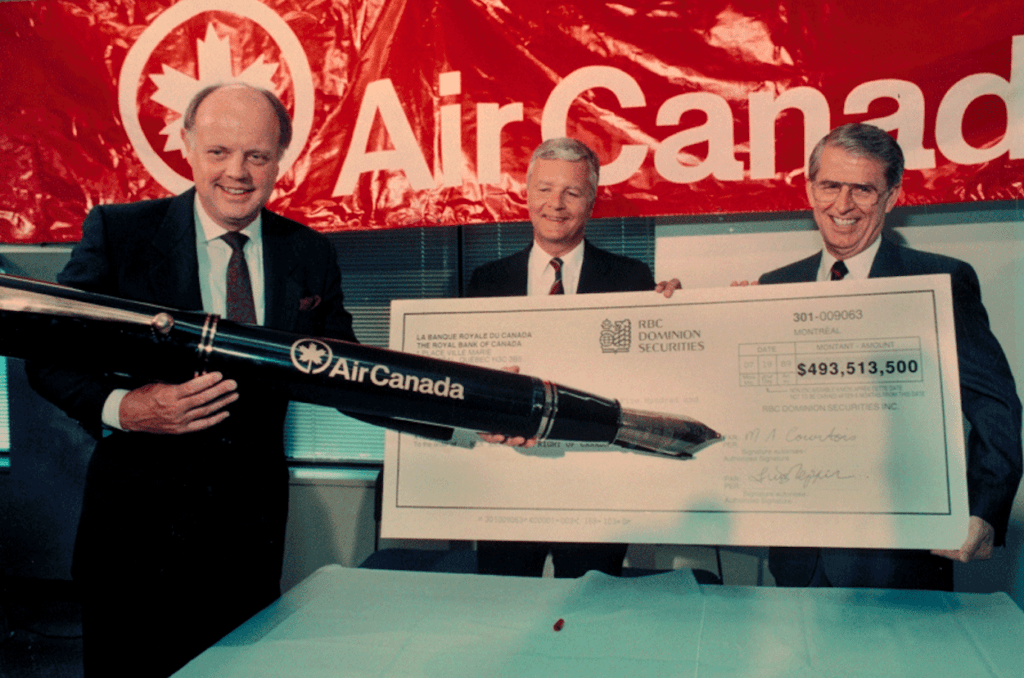40 Success Stories: When Air Canada Privatized Its Way to Better PaxEx
Share

To celebrate the 40th anniversary of APEX EXPO this year, we’re looking back at APEX members’ most significant achievements. Today, we explore how the privatization of Air Canada contributed to the airline’s subsequent progress.
Register for APEX EXPO (Los Angeles, September 9-12)
On July 19, 1989, the Canadian Federal Government completed the sale of its 41.1 million shares in Air Canada – which represented a 57 percent stake in the carrier – marking the full privatization of the airline.
The sale was completed just 15 months after being initiated on April 12, 1988, by then Deputy Prime Minister Don Mazankowski with an announcement in the House of Commons that the government of Canada intended to proceed with legislation authorizing the divestiture of the company. The Air Canada Public Participation Act received Royal Assent on August 18, 1988, and an initial public offering of 30.8 million Air Canada treasury shares was completed by Air Canada on October 13, 1988.
The government received net proceeds of CAD$473 million as a result of the final sale, making it the largest public share offering ever underwritten in Canadian capital markets. Why was this important for the passenger experience?
As a fully investor-owned airline, Air Canada was now freer to focus on innovation and growth. The proceeds of the sale were used for capital expenditures to make the airline more competitive, including the acquisition of new aircraft, as overseen by Claude Taylor and Pierre Jeanniot, who were Air Canada’s CEO and president, respectively, at the time.
Since then, Air Canada has dramatically grown its fleet and its network and carried more passengers in 2018 alone (over 50 million) than it did in the combined first 30 years of its history. It has also delivered on its promise for innovation, counting among its many firsts: industry-leading multi-trip Flight Passes, North America’s first electronic boarding passes, mobile flight notifications and mobile apps, and being Canada’s first airline to offer in-seat Wi-Fi access.
Interestingly, Calin Rovinescu, Air Canada’s current president and CEO – winner of the 2018 APEX CEO Lifetime Achievement Award – worked closely with Taylor on the privatization of the airline in his capacity as a lawyer specializing in corporate law. Today, Rovinescu is concluding the most recent modernization of Air Canada’s fleet with the entry into service of the new Airbus A220 aircraft, which is scheduled for the end of 2019.
See more posts from the 40 Success Stories campaign.



